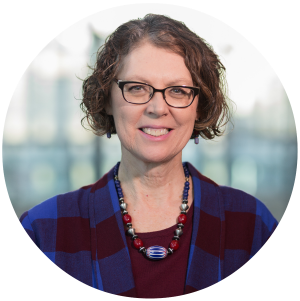
I flip through my binder of International Week program guides from years past, particularly noting 1995, the first year I began organizing this annual event, and wonder: what has changed, what remains the same, and why have I kept organizing this Week? The organization is stressful and exhausting — at the end I often say to myself, “I can’t do this again,” but every year I do. Why?
Finding the answer doesn’t take long. Here are the things that keep me going:
The Issues Still MatterThe Issues Still Matter
International Week (I-Week) provides a space for our campus and city to engage in discussion of global issues, and to think about solutions and how we can contribute to them. Some of the issues we discussed in 1995 were Canadian foreign policy, NAFTA, UN reform, women’s rights, Islam, environment, health, food security, child soldiers, how international students contribute to our learning, Indigenous knowledge and rights to land. All of these remain timely topics, and I ask myself, have we made any progress? On some issues certainly, but on others I’m not so sure, and certainly on some issues the problems have escalated. With respect to progress on human rights, I recall having playwright, TV host, and drag queen, Darrin Hagen, as a keynote speaker in 2003, and being quite nervous about how a discussion of sexual orientation and homophobia would be received. But I didn’t think twice about it this year when we invited LGBTQ rights activist Daniel Arzola.
We Need a Space for Discussion
I-Week provides a unique space for discussion of global issues across disciplines and sectors. Discussions involve academics, representatives of community and civil society organizations who engage the issues daily, as well as policy makers and public intellectuals. The discussion broadens perspectives, includes theoretical and practical considerations, and helps build collaborations. A classic example is the day-long forum on the Global Water Crisis in I-Week 2002. Speakers included a rancher from Southern Alberta, an Edmontonian working to protect the North Saskatchewan watershed, a First Nations chief from British Columbia, a UN official, a federal policy maker and academics from the U of A, the University of Québec and Côte d’Ivoire. To top it off, U of A professor David Schindler and water activist Maude Barlow delivered a joint keynote address. I feel a sense of satisfaction in having introduced Schindler and Barlow to each other — they went on to further collaborations.
The Speakers Spark Inspiration
I-Week inspires us to be global citizens. We hear from inspirational speakers. Who can beat Stephen Lewis in that category? He was a keynote speaker in 2001, 2006 and 2016. Back in 2001 and 2006 we didn’t use Eventbrite and had no idea how successful our publicity would be, but you can imagine how elated I was when I saw the queue at the Myer-Horowitz Theatre, snaking through the Students’ Union Building. The crowd overflowed the theatre in 2001 and when Lewis returned in 2006, we had overflow seating arranged for Dinwoodie Lounge — which filled. Even though Lewis outlines dire conditions in our world, his eloquence and fervor mean you can’t leave his lectures without feeling you will double your efforts to make the world a better place.
Students Live the Difference
I-Week influences and changes the lives of students. I’ve had students tell me about the difference that a particular speaker or topic has made to them. One told me about changing his field of study. Another, who happened to be an international student, wrote me after his return home, to say that “International Week dramatically influenced my thoughts on human rights issues. I had a rough idea on what human rights is all about even before coming to Canada, but International Week just blew the door (or rather my eyes) wide open on this issue. It made me realize that human rights violations were more rampant than I initially thought, and that I was also a part of this.” He went on to detail what he was doing to address these issues. Through organizing I-Week we have mentored many student staff and it has been with great interest that we see them go on to their own careers, some of them now academics focused on global issues.
It’s Still Rewarding
As the memories of each year flood back, I can easily say that there are many enjoyable and personally rewarding moments in which I feel I-Week really does contribute to “a better world.”
Nancy Hannemann — Director of Global Education, University of Alberta International

Nancy is the Director of Global Education, University of Alberta International. She has organized International Week for more than 20 years — a program which received the Outstanding Program Award from the Canadian Bureau for International Education. The Global Education Program fosters global citizenship and intercultural understanding through curricular and co-curricular activities.
International Week 2018International Week 2018 is set to run from January 29 — February 3, 2018. I-Week 2018 will focus on how the arts can contribute to social and environmental justice. Join us for a week of workshops, film screenings, theatrical presentations, music, exhibits and keynotes. Speakers and performers include Kristina Wong and Daniel Arzola.